Interview: Artistic Director ONO Kazushi talks about the 2023/2024 season
―Could you give us an overview of the 2023/24 season?
In recent years, New National Theatre Tokyo has become a global presence in the operatic world: it has been featured in specialist publications such as Opera Now (UK) and Opernwelt (Germany), and the first opera in our series of commissioned works by Japanese composers, Asters by Nishimura Akira, was nominated in the International Opera Awards. At the same time, we want our repertory works to be seen by as many people as possible, so we try to seek a balance between new productions and repertory works.
―The season opens with a new production of a double bill of Puccini's Suor Angelica and Ravel's L'Enfant et les Sortilèges.
Each of our double bill series has a common theme. This time, the theme is the love between the mother and child. The main character of Suor Angelica is sent to the convent because she had a child out of wedlock, but when she learns of her son's death seven years later, she dies and is taken to heaven. For this scene, Puccini writes his most heart-wrenching music. On the other hand, Ravel's L'Enfant et les Sortilèges is a story about a naughty child who is always throwing tantrums. One day, the animals and toys that he bullied plot a revenge to punish him, but at the end, the magic word "maman" saves him. It's a witty work typical of Ravel.
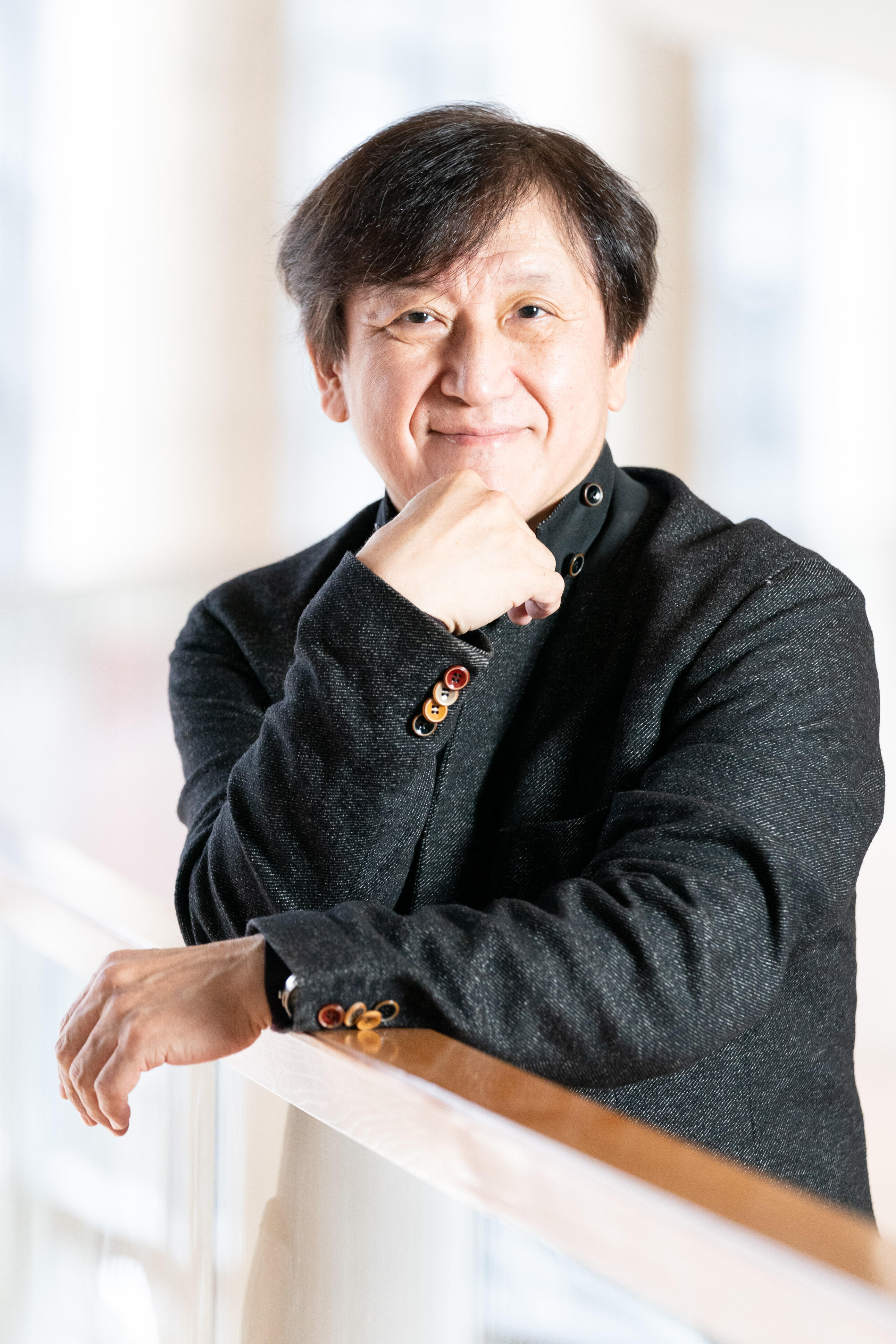
Ono Kazushi
The role of Angelica is sung by the acclaimed soprano, Chiara Isotton, and the Princess who torments her by Marianna Pizzolato, who recently appeared as Mrs. Quickly in our Falstaff. In L'Enfant et les Sortilèges, the child is sung by Chloé Briot, who is in demand internationally in this role. The other roles are performed by leading Japanese singers.
―The production is conducted by Numajiri Ryusuke and directed by Aguni Jun, both highly experienced in opera. What do you anticipate from them?
Well, I am convinced that Numajiri, who was the Artistic Director of Biwako Hall for sixteen years, and Aguni, a director whom I trust greatly, will create a vivid and colourful staging.
―The new production of Verdi's Simon Boccanegra in November should be exciting. I hear it's the first time the work is staged at the NNTT. What is the appeal of the work?
Simon Boccanegra was premiered four years after La Traviata, but Verdi later rewrote it, and the revised version was staged over twenty years after the initial premiere and six years before the premiere of Otello (our production is based on this revised version). The libretto was revised by Arrigo Boito, who would go on to write the libretti for Verdi's late masterpieces Otello and Falstaff, and he succeeded in creating the dramatic world that anticipates Otello. The story is not only about individual love, but about class issues - the conflict between the aristocracy and the commoners.
Musically, the Act I duet when Boccanegra discovers that Amelia is his daughter is one of Verdi's most profound and enigmatic structures. The characters are never stereotypical and each plays an important role in the drama. The fact that the political theme and the human theme develop simultaneously gives dynamism to the work. Verdi's mature orchestral language and the large-scale choral writing are also features of the opera.
―Directed by internationally renowned Pierre Audi, Simon Boccanegra is a co-production with the Finnish National Opera and Madrid's Teatro Real but it will be seen first in Tokyo. Can you give us a taster of the staging?
We have received the set designs from Pierre Audi. The large-scale set, designed by the celebrated contemporary artist Anish Kapoor, features an upside down volcano.
―It sounds very symbolic. How about the cast?
The world-class cast includes Roberto Frontali, who sang Rigoletto for us last season, Irina Lungu, Riccardo Zanellato, Luciano Ganci, and Simone Alberghini. We are fortunate to be able to assemble such a great cast in Tokyo.
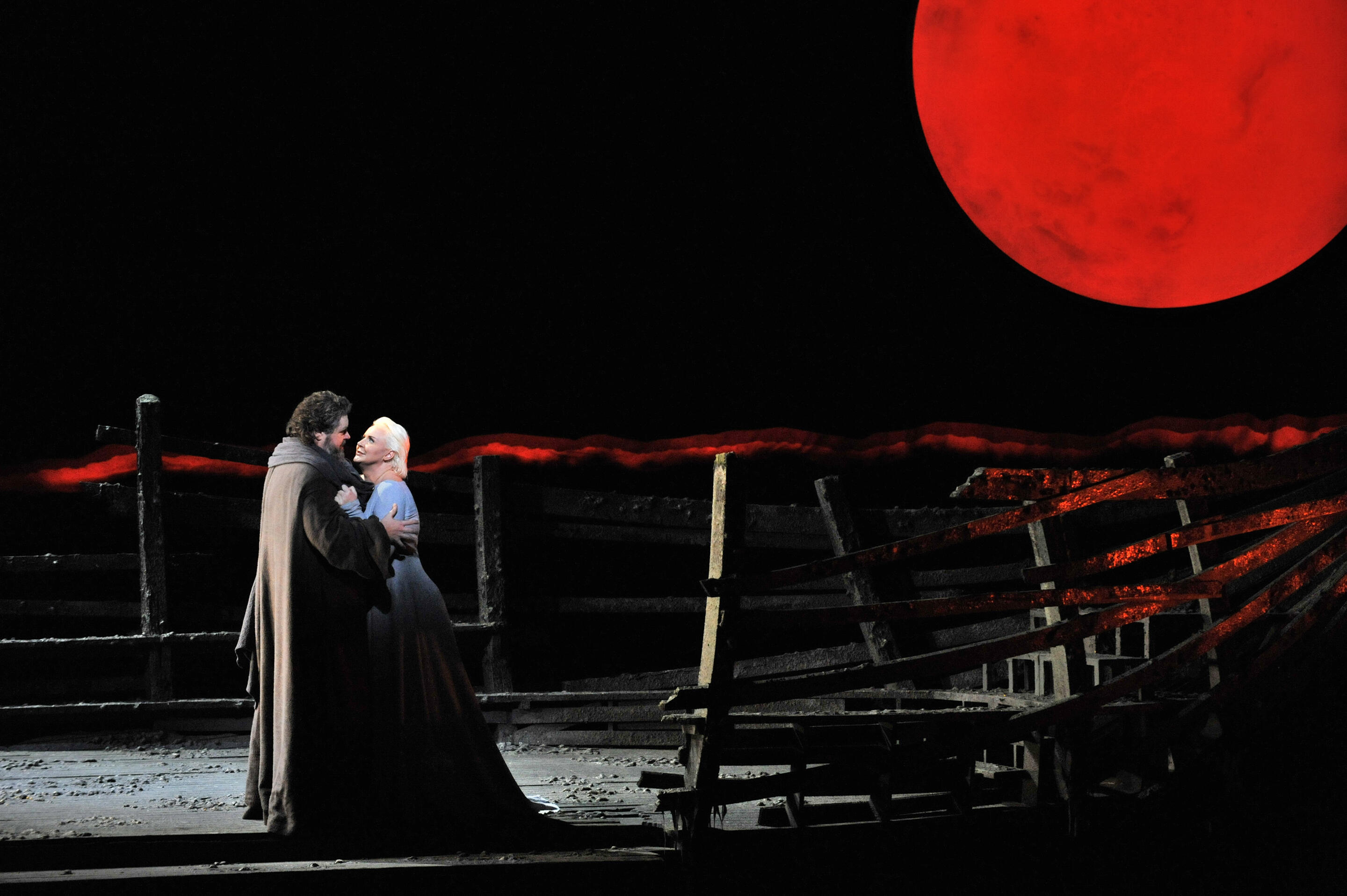
Tristan und Isolde (2010)
―This season's other productions are revivals. I'm sure there will be great anticipation for Wagner's Tristan und Isolde which you will conduct yourself. It's only the second time this opera is staged at the NNTT; the last time was thirteen years ago.
It's a shame we are only able to present two new productions this season because of the challenging global circumstances, but our production of Tristan und Isolde is worth three new productions! After a thirteen-year absence, we are happy to bring back David McVicar's magnificent production which portrays the rapture and the despair of love through light and darkness.
―I heard both the staging and your conducting were highly praised at the time and tickets were hard to get. How is the cast for this revival?
Tristan is sung by Torsten Kerl who performs regularly at Bayreuth, and Isolde by the highly acclaimed star, Eva-Maria Westbroek. We are also happy to have Egils Siliņš as Kurwenal, who is widely recognized for his appearances as Wotan.
―Also with Wilhelm Schwinghammer as King Marke and Mihoko Fujimura as Brangäne, it's an ideal cast for a Wagner production. How has your interpretation changed in the intervening years?
Well, I first conducted Tristan und Isolde at La Monnaie several years before Tokyo, but I was young then and I think it was largely a physical approach. At the NNTT last time I was more mature, but I remember feeling the immense elation of the first act as I conducted. Now thirteen years later, I am older and hopefully wiser and I expect the way I approach the transcendent beauty of Isolde's final death scene may well have changed.
―The other revival productions also feature an attractive line-up of conductors and singers.
Patrick Hahn, who will conduct Die Fledermaus in December, is a rising talent and he is sure to delight the audience with his sharp and lively music-making. Conducting Eugene Onegin is Valentin Uryupin, who made an unusual career transition from clarinet player to conductor. The soprano Ekaterina Siurina is one of the world's foremost interpreters of Tatyana, and Yuriy Yurchuk was highly praised for his Onegin at La Monnaie recently. In Don Pasquale, Michele Pertusi makes his NNTT debut in the title role. I had been planning his Don Pasquale for many years. Kamie Hayato is the scheming Malatesta, Ernesto is sung by acclaimed tenor Juan Francisco Gatell, and Norina by Lavinia Pini. I'm sure it will be a wonderful performance with four bel canto singers.
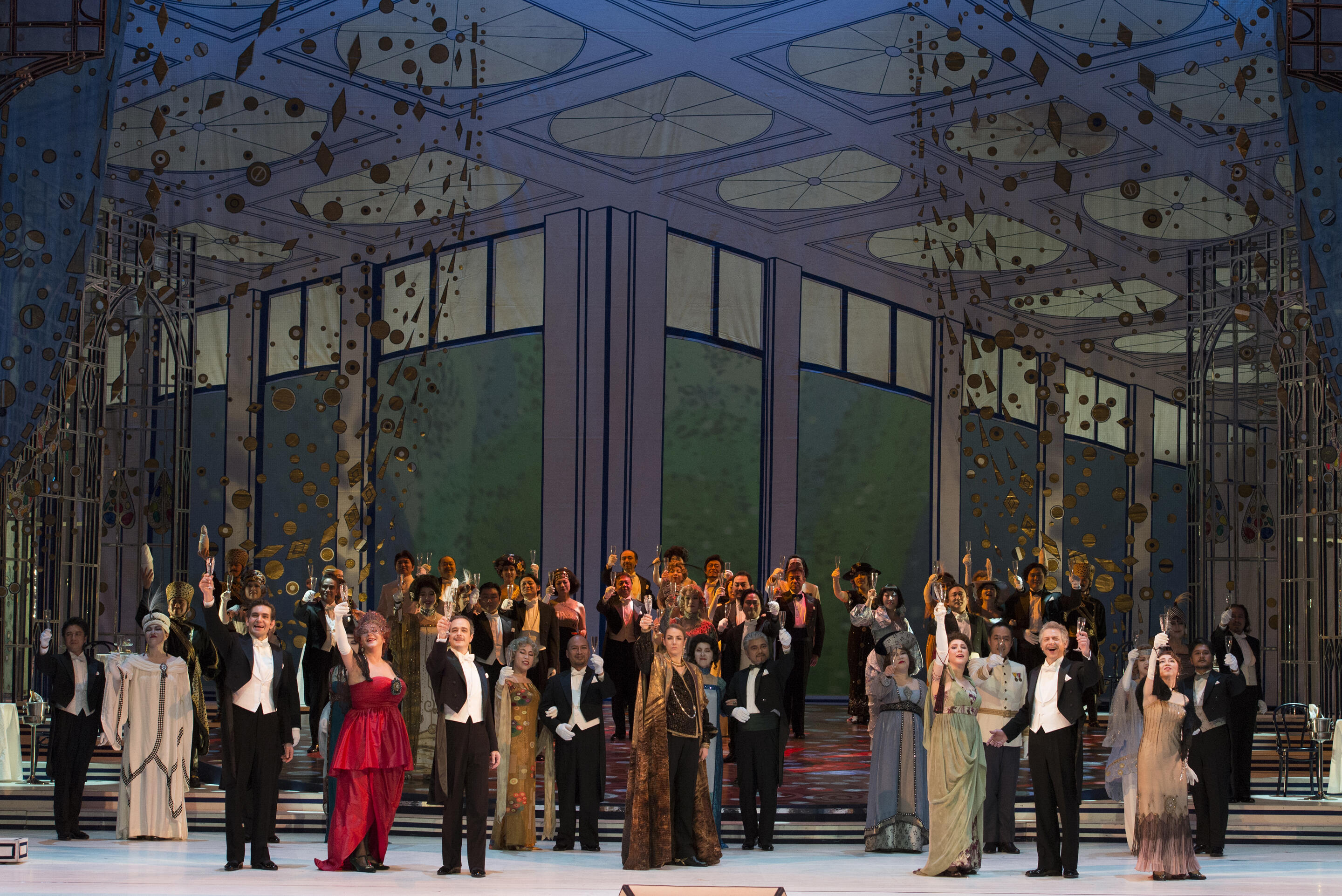
Die Fledermaus (2018)
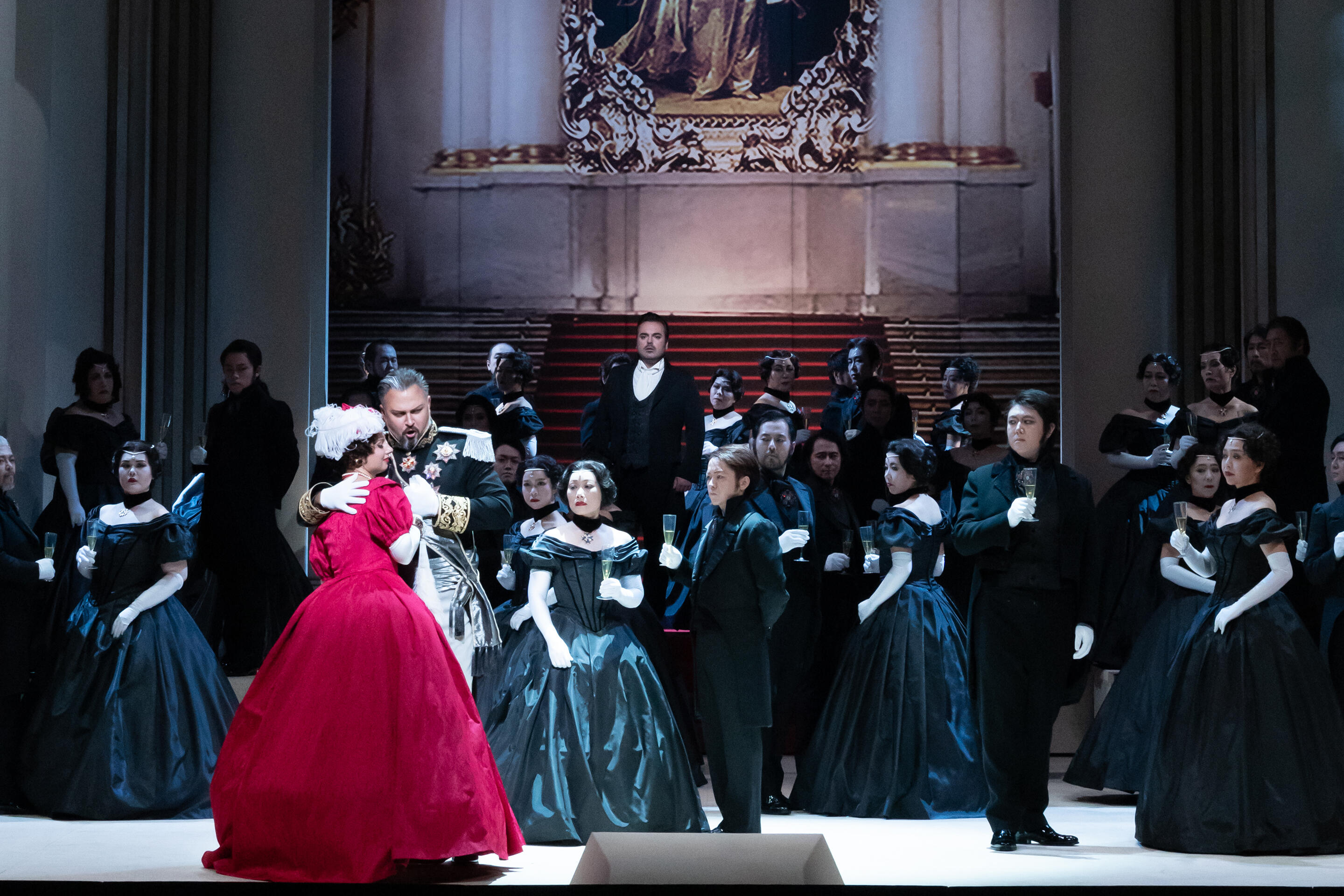
Eugene Onegin (2019)
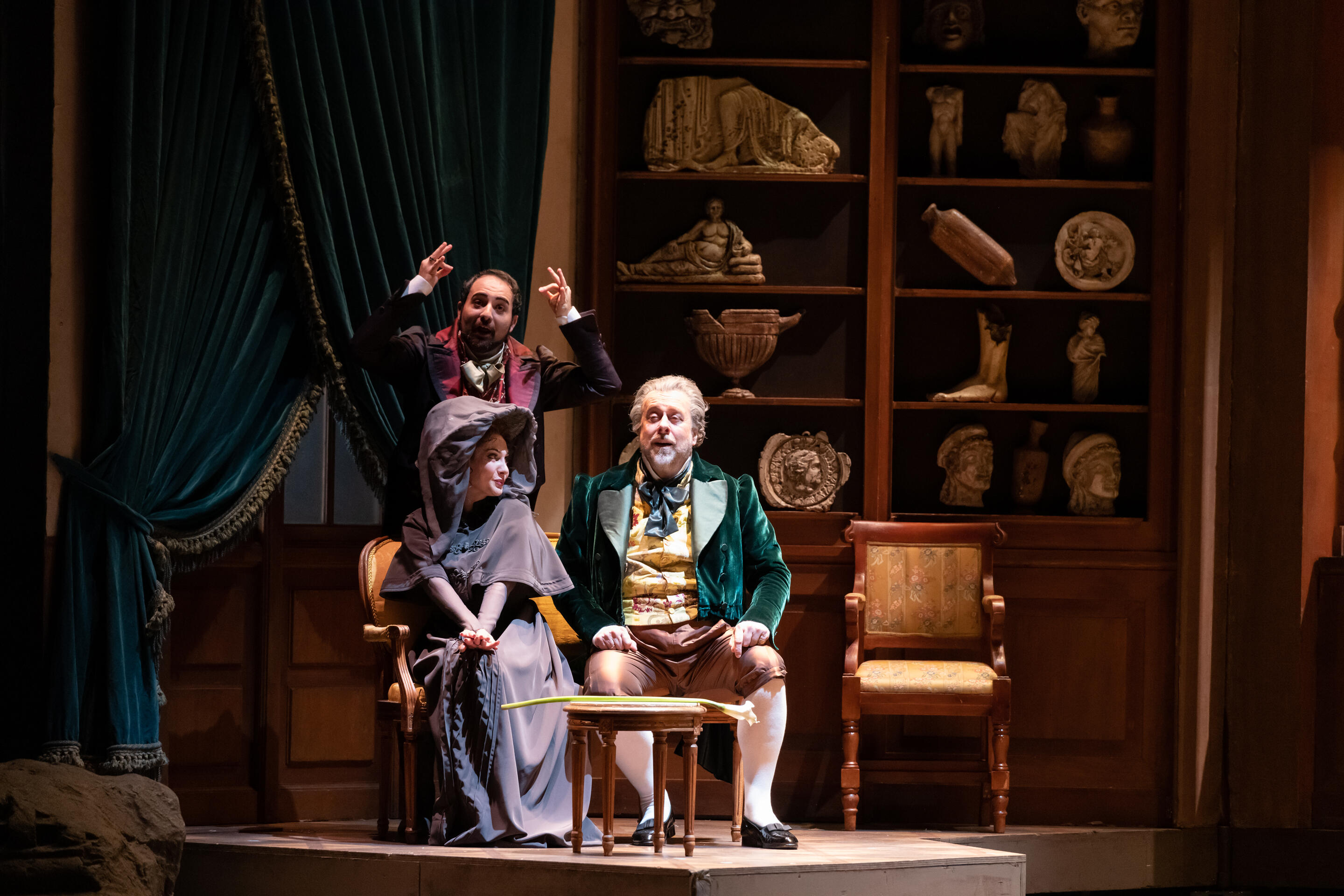
Don Pasquale (2019)
―In La Traviata, the focus will no doubt be on Nakamura Eri's Violetta.
Yes, this season Nakamura Eri reprises the role of Violetta. She has achieved great success as Violetta and also as Cio-Cio-san in Madama Butterfly, and we hope to see her putting her stamp on the role at the NNTT. Musically it's a strong revival with tenor Riccardo della Sciucca as Alfredo and Francesco Lanzillotta conducting.
―Mozart's Così fan tutte is conducted by Iimori Norichika, who led Britten's A Midsummer Night's Dream in 2020.
Yes, he is a vastly experienced maestro. We have assembled a distinguished cast including Serena Gamberoni, Daniela Pini, Joel Prieto, and Filippo Morace. The bubbly Despina is sung by Kushima Kanae whose voice has blossomed greatly in recent years, and I'm sure she will hold her own in this cast.
―The final production of the season is Puccini's Tosca in the lavish staging by Antonello Madau-Diaz.
Tosca will be conducted by the esteemed Italian maestro Maurizio Benini, who returned to the NNTT in May to conduct Rigoletto after an absence of 25 years. The title role is sung by Joyce El-Khoury, Lebanese-born soprano who grew up in Canada and received her Bachelor of Music degree from the University of Ottawa. She will surely make a dazzling Tosca. Teodor Ilincăi, who made his house debut as Calaf in Turandot in 2019, appears as Cavaradossi.
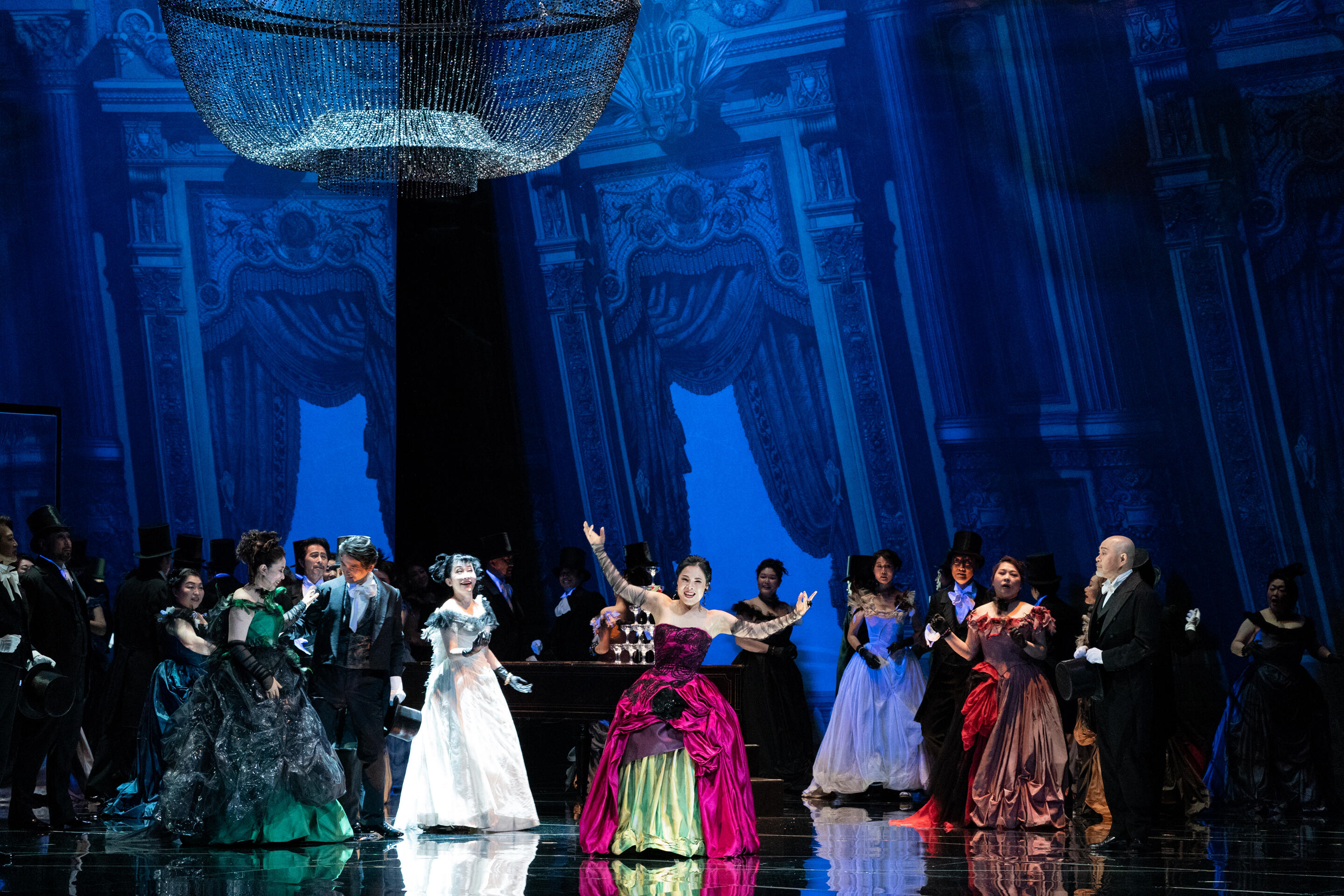
La Traviata (2022)
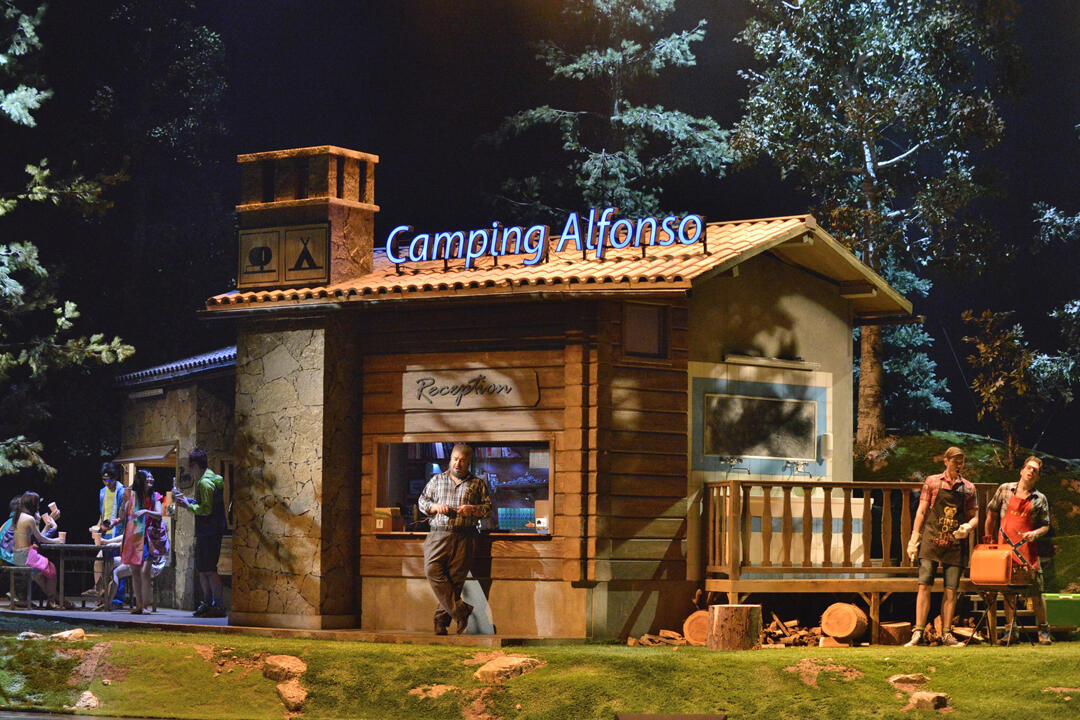
Così fan tutte (2013)
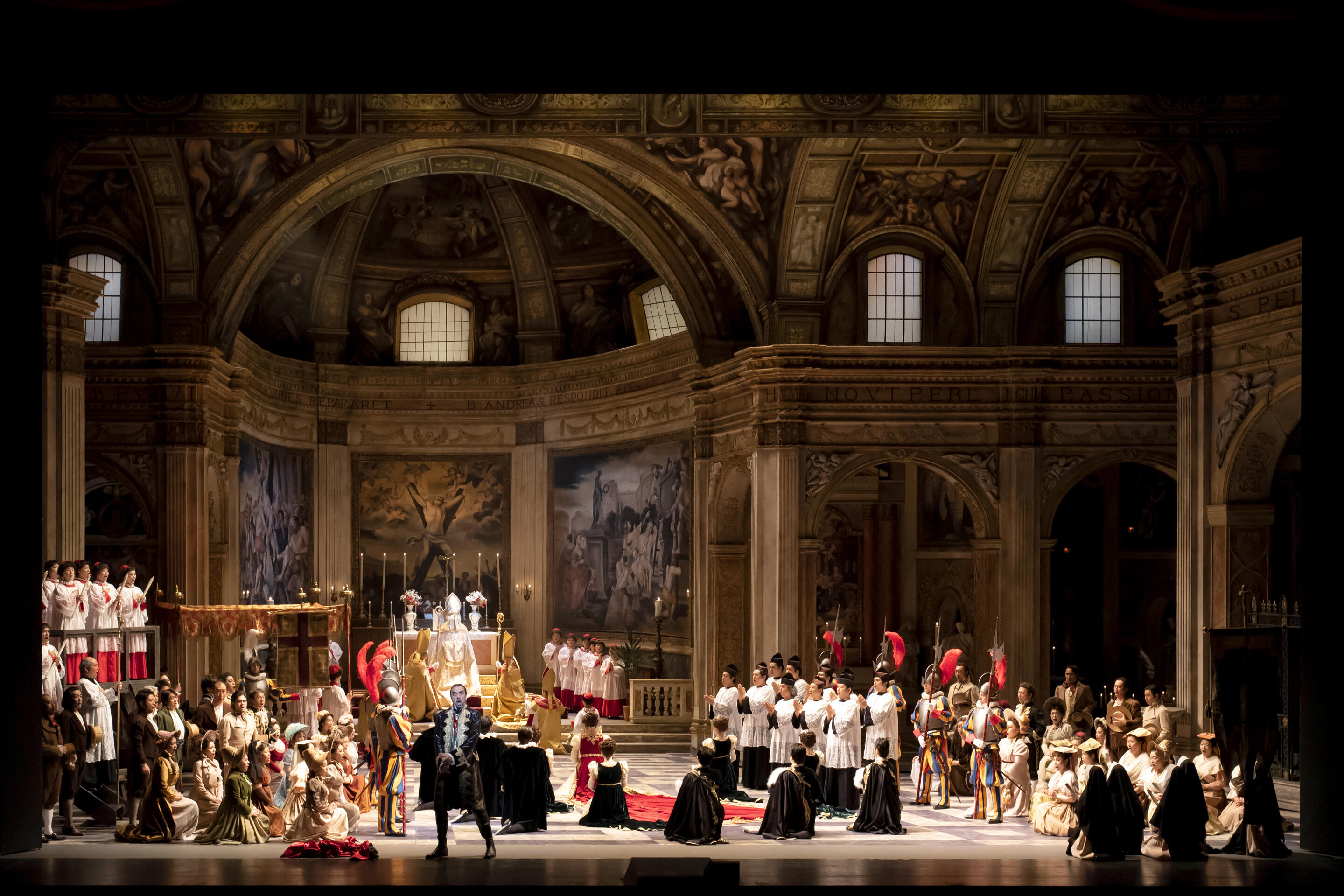
Tasca (2018)
―Overall, it's a line-up which reflects your strong will to keep the arts alive.
Despite our line-up of two new productions and seven revivals, we hope people will feel the energy and effort we have put into producing a strong programme and cast. To live a life as a human being, it's important not only to live biologically but for the soul to live too. Human sensibility has no limits. The more one cultivates it, the more refined it will become. Sensibility is one of the most beautiful things in human nature. We strongly believe that the duty of art is to enrich and stimulate the human soul, and we always want to keep that in mind.
Interview by Inouchi Mika

